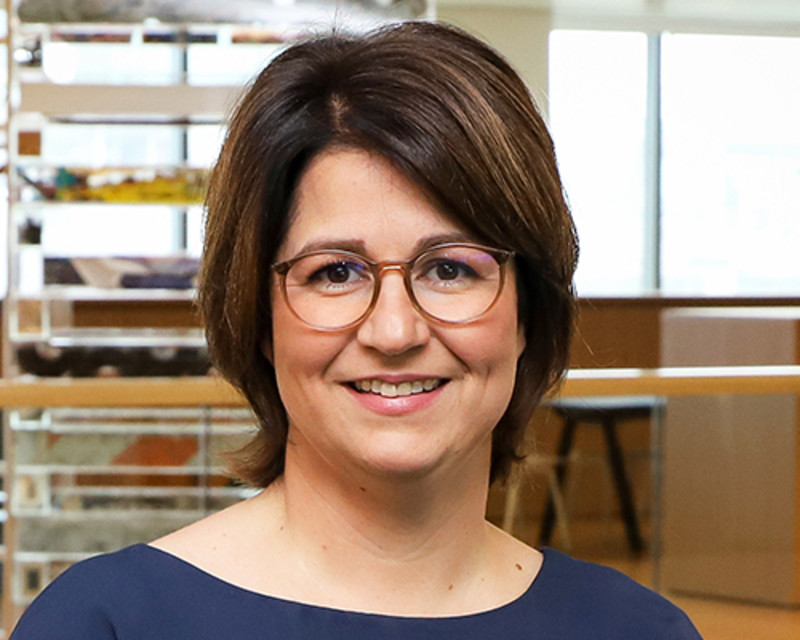

Protecting human rights on 10th anniversary of UN Guiding Principles
Investors need to watch out for the human rights abuses that still occur in many supply chains, says Senior Engagement Specialist Danielle Essink.
まとめ
- Human rights abuses still rife in mining, fishing and textiles
- Corporate Human Rights Benchmark monitors problem areas
- Due diligence is essential in long or complex supply chains
June marks the 10th anniversary of the signing of the UN Guiding Principles on Business and Human Rights, a global framework for business that places a strong emphasis on due diligence to detect human rights abuses. Investors including Robeco follow these principles as a blueprint for best practice in this area.
Some high-profile, persistent human rights abuses include child labor in the mining of minerals for car batteries, modern slavery on fishing boats, and poor working conditions in textiles that has sometimes proved fatal.
Robeco routinely engages with companies on their human rights due diligence, enabling companies to spot abuses both in their own operations and in their supply chains, particularly when ingredients or materials are sourced from high-risk areas with poor legal or regulatory protections.
“Human rights due diligence is a powerful tool to identify, prevent, mitigate and account for how a company addresses the most severe risks to people in connection to its business,” says Essink, who wrote a blog for the Business and Human Rights Resource Centre to commemorate the anniversary.
“Human rights is such a broad topic that we need companies to proactively think about where their greatest impacts on human rights are, and what the most salient issues are that they should be caring about in their industry.”
“One of the biggest problems are conflict-affected areas and high-risk industries such as textiles and fishing. Then there is the issue of data collection and privacy in the big tech companies. All have human rights implications.”
“The UN Guiding Principles is a framework that Robeco uses very actively. We regularly engage with companies on how they ensure they are safeguarding human rights and how they're implementing these principles.”
Corporate Human Rights Benchmark
How well this is done within an industry is monitored by the Corporate Human Rights Benchmark (CHRB), which scores companies on a set of indicators, including due diligence. In March 2020, Robeco was one of 174 international investors taking part in an initiative coordinated by the Investor Alliance for Human Rights (IAHR) that wrote to the 95 companies that failed to score any points on the due diligence indicators in the 2019 CHRB ranking.
“While some companies improved, 79 continued to score zero points on human rights due diligence in the 2020 ranking, and are therefore included in the 2021 engagement target list that will address this,” says Essink, Robeco’s advisory committee member for the IAHR.
“Nearly half of the 230 largest publicly traded companies in high-risk sectors measured against five human rights due diligence indicators scored zero points on human rights due diligence. This makes for very grim reading.”
Supply chain abuses
Many otherwise respectable companies often don’t know of the abuses that go on in their long and often complex supply chains, Essink says.
“The issue with Thai fishing boats concerned modern slavery and forced working for months at a time. The supermarkets that we engaged with several years ago who sourced their prawns from these boats had no idea that this was going on in their supply chains.”
“By doing better supply chain due diligence, they can check where they are sourcing from, and what standards are being upheld in the supply chain.”
Do your due diligence
It boils down to doing thorough due diligence, from the head office right down to the field offices and factories that modern corporations rely on, Essink says. To improve work in this area, Robeco will ramp up its engagement later this year with companies operating in high-risk regions on their approach towards conducting thorough due diligence.
The law is also reinforcing this approach in many jurisdictions. On 11 June 2021, the German parliament passed the ‘lieferkettensorgfaltspflichtengesetz’ (law on corporate due diligence in supply chains’) which obligates companies to take steps to prevent human rights violations in their supply chains.
“We believe that all business actors have a responsibility to respect human rights, and that the process of continuously conducting human rights due diligence is a core requirement for companies and investors in fulfilling that responsibility,” Essink says.
“This is especially true in a world exposed to increased conflict and shrinking civic space. We need more investors to actively ask companies about the implementation of the Guiding Principles. Let’s make the next 10 years count!”
重要事項
当資料は情報提供を目的として、Robeco Institutional Asset Management B.V.が作成した英文資料、もしくはその英文資料をロベコ・ジャパン株式会社が翻訳したものです。資料中の個別の金融商品の売買の勧誘や推奨等を目的とするものではありません。記載された情報は十分信頼できるものであると考えておりますが、その正確性、完全性を保証するものではありません。意見や見通しはあくまで作成日における弊社の判断に基づくものであり、今後予告なしに変更されることがあります。運用状況、市場動向、意見等は、過去の一時点あるいは過去の一定期間についてのものであり、過去の実績は将来の運用成果を保証または示唆するものではありません。また、記載された投資方針・戦略等は全ての投資家の皆様に適合するとは限りません。当資料は法律、税務、会計面での助言の提供を意図するものではありません。 ご契約に際しては、必要に応じ専門家にご相談の上、最終的なご判断はお客様ご自身でなさるようお願い致します。 運用を行う資産の評価額は、組入有価証券等の価格、金融市場の相場や金利等の変動、及び組入有価証券の発行体の財務状況による信用力等の影響を受けて変動します。また、外貨建資産に投資する場合は為替変動の影響も受けます。運用によって生じた損益は、全て投資家の皆様に帰属します。したがって投資元本や一定の運用成果が保証されているものではなく、投資元本を上回る損失を被ることがあります。弊社が行う金融商品取引業に係る手数料または報酬は、締結される契約の種類や契約資産額により異なるため、当資料において記載せず別途ご提示させて頂く場合があります。具体的な手数料または報酬の金額・計算方法につきましては弊社担当者へお問合せください。 当資料及び記載されている情報、商品に関する権利は弊社に帰属します。したがって、弊社の書面による同意なくしてその全部もしくは一部を複製またはその他の方法で配布することはご遠慮ください。 商号等: ロベコ・ジャパン株式会社 金融商品取引業者 関東財務局長(金商)第2780号 加入協会: 一般社団法人 日本投資顧問業協会























